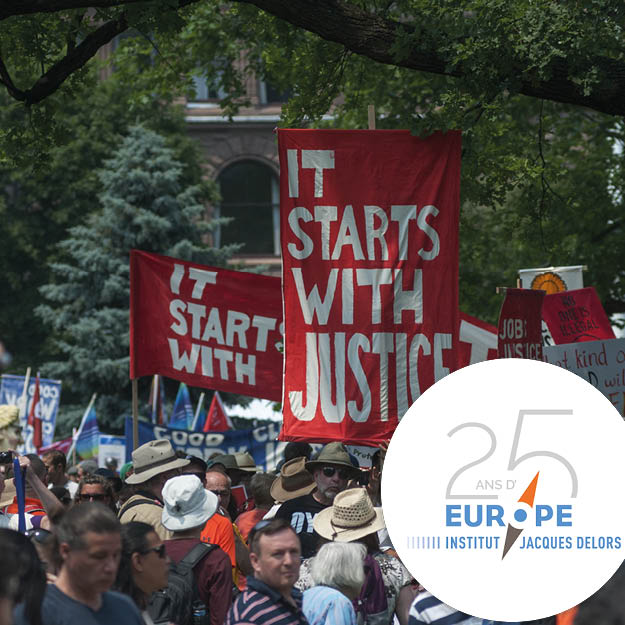Fonds social pour le climat pour une transition énergétique juste

La transition verte sera une transition juste ou ne sera pas. L’explosion des prix de l’énergie dans toute l’Europe entraine une crise sociale qui nous rappelle les conséquences négatives de notre système énergétique fossile. Le règlement sur Fonds social pour le climat, proposé dans le cadre du paquet législatif « Fit for 55 » (2021), marque une tentative de la Commission européenne d’atténuer les impacts sociaux attendus de la mise en place d’un nouveau marché du carbone sur les émissions liées aux secteurs du bâtiment et du transport routier (Système d’échange de quotas d’émission 2 « marché carbone 2 »).
Ce policy brief propose trois réflexions d’ordre général sur les défis et opportunités que pose le financement d’une transition juste à l’aide du Fonds social pour le climat. Pour commencer, un prix carbone européen sur les émissions du bâtiment et du transport routier devrait accroitre les défis sociaux associés à la transition énergétique. La hausse des factures d’énergie imputable au SEQE2 pourrait avoir de lourdes conséquences sur les familles européennes, pour des bénéfices limités en termes de décarbonation, car une augmentation de facture n’exerce qu’une influence minime sur la consommation d’énergie des particuliers. Deuxièmement, le Fonds social pour le climat, tel que proposé actuellement, ne suffira pas à atténuer les effets négatifs et injustes du nouveau marché carbone sur le bâtiment et le transport routier sur les Européens, avec un risque élevé d’agitation sociale. Le Conseil et le Parlement devraient par conséquent enterrer la proposition de nouveau marché carbone de la Commission. Le Fonds social pour le climat a cependant le potentiel d’envoyer un signal fort de l’engagement de l’Union européenne en faveur une transition juste, ce qui pourrait en retour favoriser l’acceptabilité du Green Deal européen. Pour une transition énergétique juste, il convient d’abandonner le marché carbone européen 2 et de mettre en place le Fonds social pour le climat avec les financements du marché du carbone existant (« marché carbone 1 »). Le Fonds social pour le climat pourrait être redirigé vers le financement d’investissements verts dans le logement et la mobilité, au profit des citoyens les plus vulnérables.




